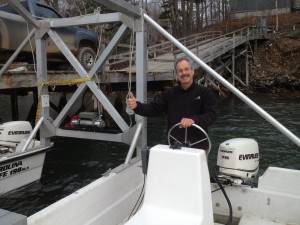 Spreading Knowledge and Lessons Learned in the Pacific Northwest to Maine and Beyond
Spreading Knowledge and Lessons Learned in the Pacific Northwest to Maine and Beyond
In 2010, Global Ocean Health (GOH) organized a workshop for shellfish growers in Maine with the goal of raising awareness in East Coast shellfish-growing communities about ocean acidification (OA) and the issues West Coast shellfish growers were facing. GOH brought experts, including Alan Barton, manager of the Whiskey Creek hatchery in Oregon, to Maine to speak about the massive larval die-offs they’d seen at Whiskey Creek and other hatcheries, and why ocean acidification was the likely culprit.
Bill Mook, owner of Mook Sea Farms and an oyster hatchery in Maine, recalls how “this meeting got me thinking about observations we were making in our hatchery in the context of OA and climate change.” He says, “GOH has played a critical role in raising awareness of OA and initiating action here on the East Coast. They’ve been a consistent presence, providing support in our efforts to raise a broader awareness of the issue, and getting people to begin planning and thinking about what needs to be done—both in terms of monitoring and in developing the scientific information needed to respond to the problem.”
Now, GOH is advising shellfish growers and other coastal leaders in Maine, such as Maine Sea Grant and Island Institute, in their efforts to create their own version of Washington’s Blue Ribbon Panel to address OA. Mook sees this and other efforts to increase monitoring in the Gulf of Maine as key to “making intelligent decisions about the possibilities for ameliorating the problem.” GOH continues to work on helping marine dependent communities get the information they need to make decisions that will preserve their livelihoods.
Recently, GOH coordinated a workshop in New Zealand, reminiscent of the 2010 workshop in Maine. Again, experts like Alan Barton came to share their stories of OA’s impacts on shellfish. And this time, instead of being an audience member at the workshop, Mook presented to the New Zealand shellfish growers via Skype, sharing the knowledge he has gained since that 2010 workshop in Maine. This illustrates a key strategy of GOH: to help shellfish growers like Barton and Mook become their own advocates and share their knowledge and experience of dealing with OA for the benefit of other industry stakeholders around the world.
